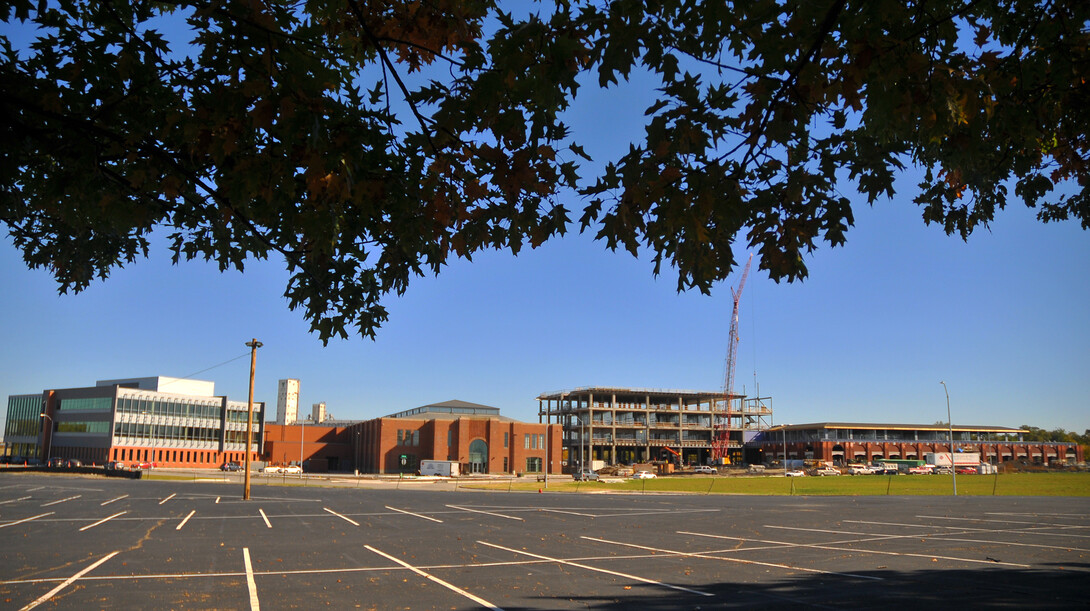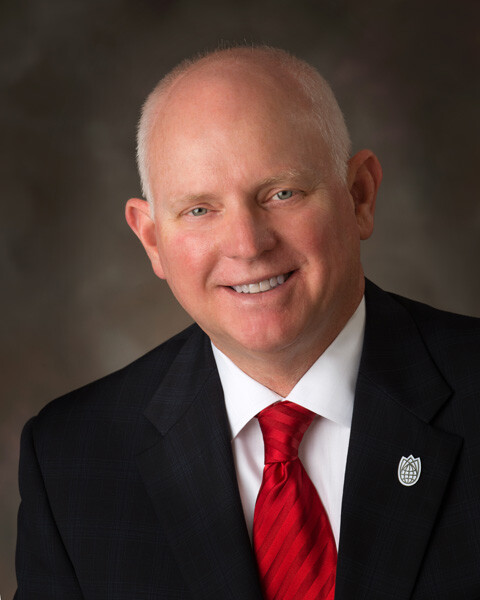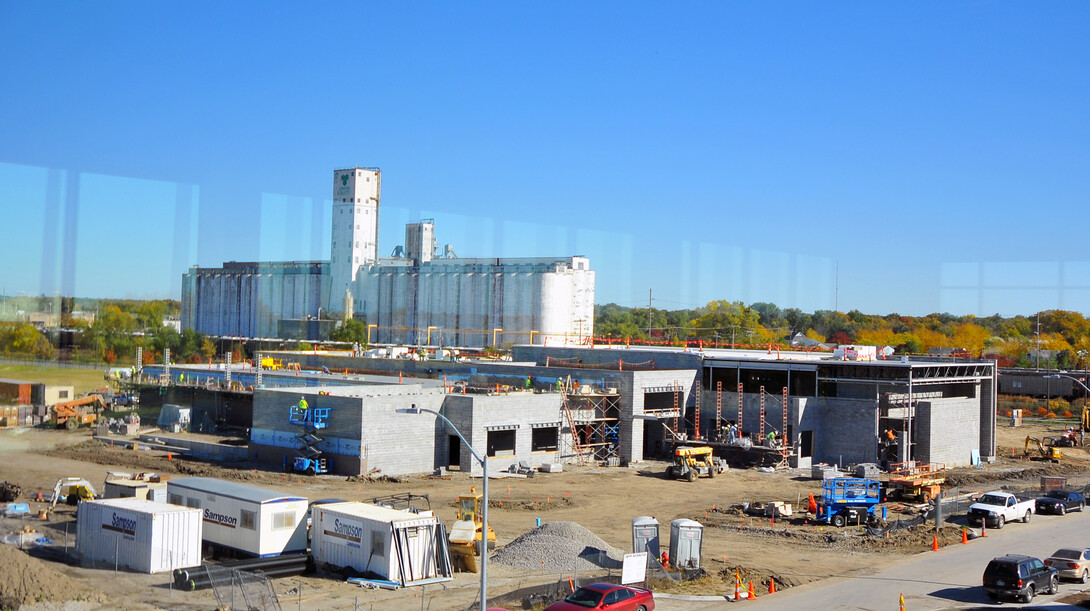
Phase I of development at UNL’s Nebraska Innovation Campus is ahead of schedule, with facilities taking shape that will attract talent, open new opportunities for students and faculty and grow Nebraska’s economy.
The historic 4-H Building, linked to a new building, forms Innovation Commons, a state-of-the-art facility that houses a conference center and where Innovation Studio, a “maker space” for innovators and a business accelerator are underway. Already, the conference center has hosted a “demo day” for Nebraska startup businesses that attracted 300 attendees interested in entrepreneurship.
A Food Innovation Center, scheduled to open in 2015, will house UNL’s growing Food Science and Technology Department and ConAgra Foods, the university’s first private collaborator at Innovation Campus. Joint research projects between UNL faculty and ConAgra could include those in food sanitation, food safety, allergens and nutrition, and food product development.
And a 45,000-square-foot greenhouse center is underway that will expand opportunities for plant science research and education. The greenhouse will house a unique LemnaTec system, which uses specialized conveyors and a camera system to take high-resolution images of plants as they grow in varied conditions. The system – one of only a few in the world – can identify phenotypes of food crops that display beneficial characteristics such as drought tolerance and could significantly advance the university’s plant science research agenda and open new opportunities for private-sector collaborations.
That and other progress keeps Innovation Campus on track with its master plan, which calls for 2.2 million square feet of developed space and 5,000 people – the majority of whom will be private-sector employees – working on the campus over a 25-year build-out. A generous $25 million investment from the state, combined with private-sector investments of more than $100 million, has played a key part in the successful jump-start of the campus.
Now, nearly five years after the university acquired the former state fairgrounds to develop Innovation Campus, the initiative is well-positioned for its next phase of growth in leveraging university research expertise for Nebraska’s economic benefit.
“We’re confident that the metrics we laid out for economic growth are reachable,” Chancellor Harvey Perlman said. “The question is how quickly we want to achieve them.”
Innovation Campus is among the components of the university’s 2015-17 biennial budget request, which includes a $20 million economic competitiveness package that seeks to advance initiatives related to workforce development, talent recruitment, public-private partnerships, and research and innovation. About $4 million of the package would be directed to Innovation Campus to move the greenhouse center forward, bolster the business accelerator and Innovation Studio, and leverage the university’s ongoing investments in relocating the Department of Food Science & Technology.
“Additional legislative support would significantly accelerate the promise of what Innovation Campus can offer for Nebraska,” Perlman said.
Perlman noted that the university has demonstrated a strong commitment in Innovation Campus. Beyond investment of resources, moving the food science department there will create a population at the campus and potentially help attract additional private companies. Continued development is necessary to attract more private partners, he said, particularly those who need to make quick decisions about where to locate.
Dan Duncan, executive director of Innovation Campus, said the university is in discussions with additional potential private partners. Innovation Commons already has leased 35,000 square feet – including for the Robert B. Daugherty Water for Food Institute and NUtech Ventures, UNL’s technology transfer arm – with negotiations underway for another 43,000 square feet in leases. Private partners that locate at Innovation Campus must have a strategic relationship with the university and provide opportunities for collaborative faculty research or student internships. Innovation Campus is being built around core UNL strengths in food, fuel and water – areas that are important to Nebraskans and others around the world.
The other components of the university’s proposed economic competitiveness package include the Rural Futures Institute, the National Strategic Research Institute, the Peter Kiewit Institute, the Health Science Education Complex in Kearney, and business engagement and workforce development initiatives across all four campuses.










